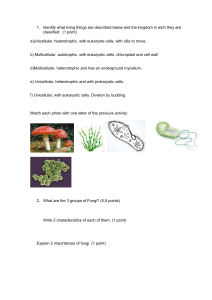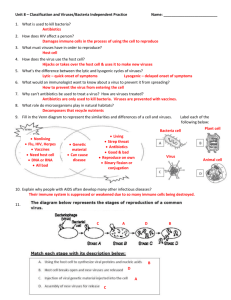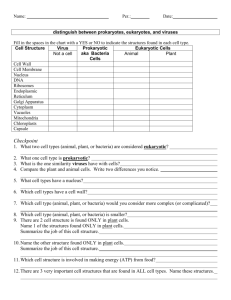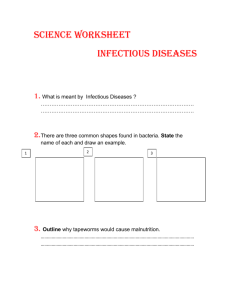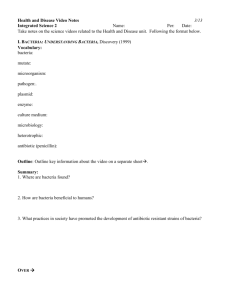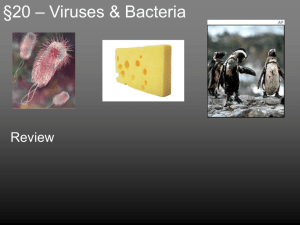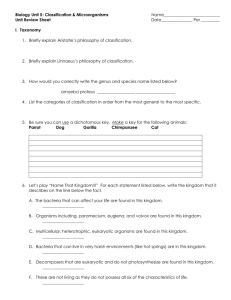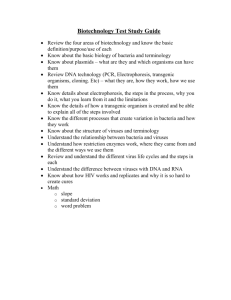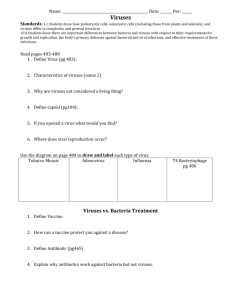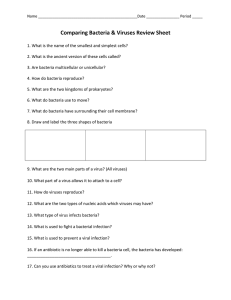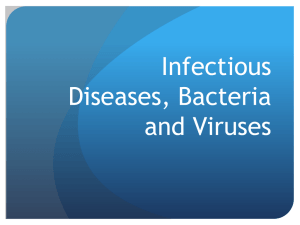Taxonomy, Viruses, Monera, Protista REVIEW
advertisement
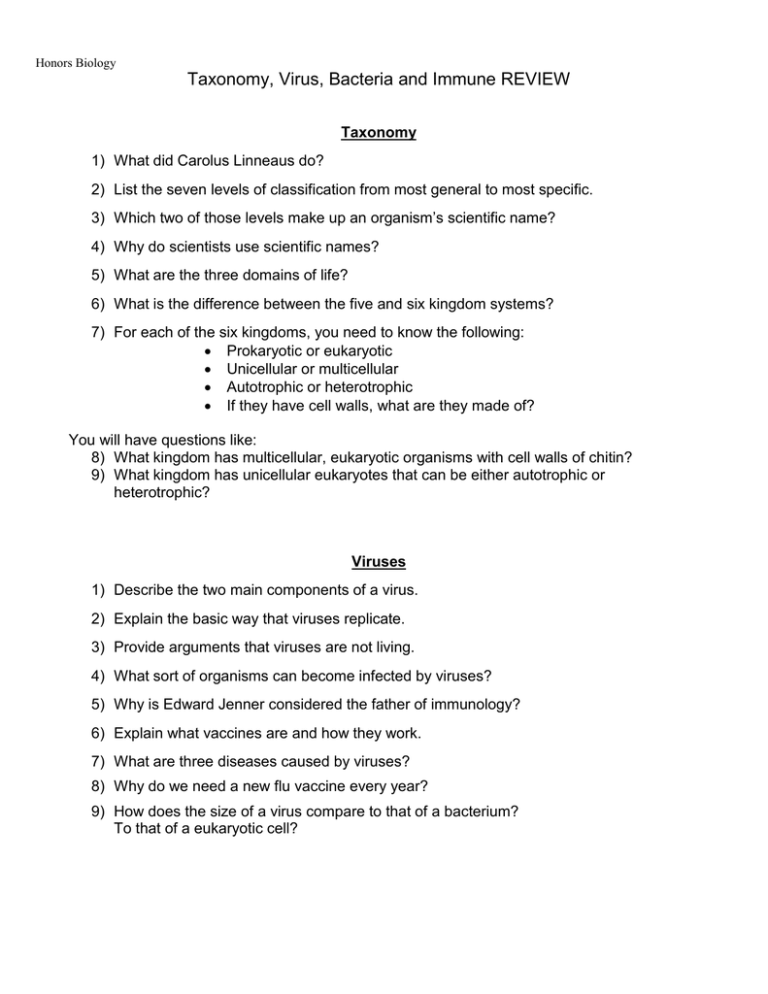
Honors Biology Taxonomy, Virus, Bacteria and Immune REVIEW Taxonomy 1) What did Carolus Linneaus do? 2) List the seven levels of classification from most general to most specific. 3) Which two of those levels make up an organism’s scientific name? 4) Why do scientists use scientific names? 5) What are the three domains of life? 6) What is the difference between the five and six kingdom systems? 7) For each of the six kingdoms, you need to know the following: Prokaryotic or eukaryotic Unicellular or multicellular Autotrophic or heterotrophic If they have cell walls, what are they made of? You will have questions like: 8) What kingdom has multicellular, eukaryotic organisms with cell walls of chitin? 9) What kingdom has unicellular eukaryotes that can be either autotrophic or heterotrophic? Viruses 1) Describe the two main components of a virus. 2) Explain the basic way that viruses replicate. 3) Provide arguments that viruses are not living. 4) What sort of organisms can become infected by viruses? 5) Why is Edward Jenner considered the father of immunology? 6) Explain what vaccines are and how they work. 7) What are three diseases caused by viruses? 8) Why do we need a new flu vaccine every year? 9) How does the size of a virus compare to that of a bacterium? To that of a eukaryotic cell? Bacteria (Monera) 1) What type of cells are monerans? Are they unicellular or multicellular? 2) Describe the basic cellular parts of a typical Moneran. 3) What two domains are made of prokaryotic organisms? 4) What is a main structural difference between these two groups? 5) Use one word to describe Archaebacteria. 6) What are some examples of bacteria? 7) What are some beneficial things bacteria can do? 8) What are some diseases that they cause? 9) Why are antibiotics effective against bacteria and not viruses? 10) What are “superbugs?” and how can bacteria become resistant to antibiotics? Immune System 1) What is the difference between nonspecific and specific response? 2) What are the three lines of immune defense? (be able to give specific details of each) 3) Which line(s) are nonspecific and which are specific? 4) What is the role of a fever in the inflammatory response? 5) What is the difference between active and passive immunity? 6) What is the difference between antigen, antibodies, and antibiotic? 7) What are phagocytes (what type of cell are they and what do they do?) 8) What happens to your white blood cell count when you are sick? Where can you feel this on your body? 9) Use knowledge about the third line of defense, antibodies, and memory cells to provide an explanation for why vaccines work.
